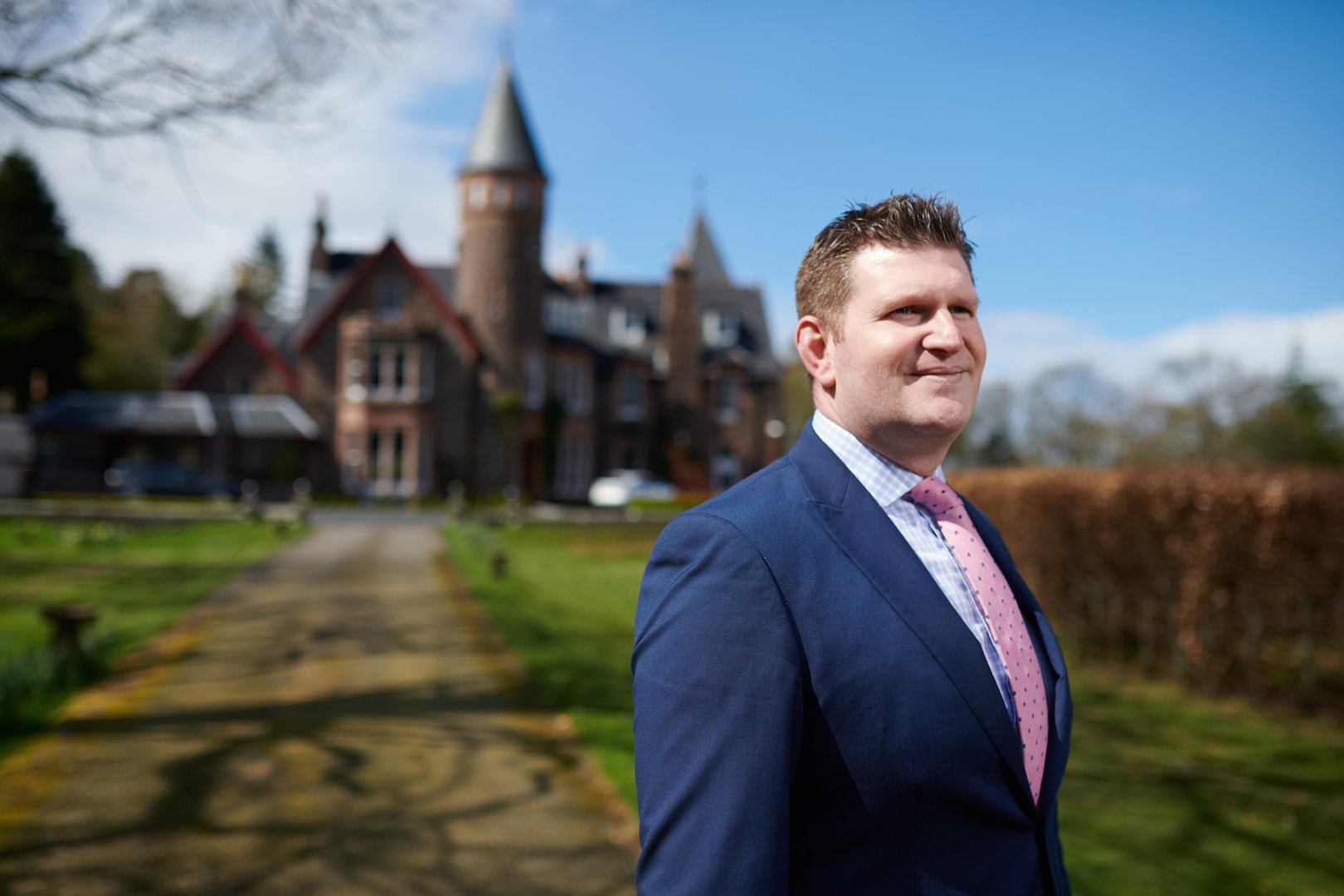The operations director of a hotel is the person that keeps everything running smoothly. They deal with everything from IT to plumbing, F&B to housekeeping, job training and career development. In this interview Ross Aitchison, operations director at one of the UKs leading boutique hotels, explains the importance of working hard, asking questions and paying attention to detail, to get to the top.
How did you get into hospitality?
My parents had a small hotel in the Highlands where I worked during the school holidays. Dad was the chef and Mum was front of house. That was where I learned about the importance of attention to detail, and realized it was something I really enjoyed.
What sort of jobs did you do?
I helped with KP (kitchen porter) work: how important it was to get pans back to my Dad quickly, how to plate dishes beautifully, how to communicate with the team and timing in the kitchen. I also discovered a love of turn down service and making rooms nice for people coming back after dinner.
How did you go from Kitchen Porter to Director of Operations?
I’d always wanted to be a professional rugby player, and when I was playing in Bath semi-professionally, I worked at Lucknam Park and Bath Priory Hotel. Both are very high-end, luxury hotels with Michelin starred restaurants, which was the level I enjoyed. F&B really appealed to me, because I love food and the story of food; where it comes from and what the farmer does to get it from field to plate.
When the rugby didn’t work out because of an injury, I decided to move back to Scotland. By then I felt I’d learned what I could in F&B and wanted to progress out of it. So, I started learning about housekeeping and that really floated my boat. Eventually I moved into operations because I wanted more variety and the chance to learn about all other aspects of hotel management.
What is a day in the life of an Operations Director like?
A lot of my day is taken up communicating with people and checking things are done correctly. I have weekly meetings to discuss any issues and repairs. Most importantly it’s being around for everyone, overseeing every aspect of the property and making sure everything is flowing. If your team doesn't have the tools to do the job, their department is not going to run properly. It’s as simple as that.
How did you get your knowledge?
By learning from others. I’m 40 now, and if you were to try to do this job at 20 I’d say you don’t have the life skills to do it effectively. I’ve always said to the junior members of my team, come and see what I’m doing, ask questions, ask the chef how much a piece of meat costs, ask maintenance how do you fix that. It’s the only way to build an overall knowledge of how things work.
What do you love most about your job?
The people I work with. We’re very close knit and when you’re working to a very high standard it’s important to have fun and a laugh sometimes. I also love the spontaneity of it. I don’t come every day and do boring, mundane things. You never know what’s going to happen.
What’s the craziest thing you’ve been asked to do?
Sometimes we get film crews wanting to use the location for TV or an advert. I’ve been asked how much it is to rent a cow, or a tree so, they can put a bride up a tree in a dress drinking a certain brand of water!
What are your biggest challenges?
The struggle for finding the right talent is huge. For us, a lot of the time it’s not so much about experience, but finding people with the right soft skills, attitude, a willingness to learn and a desire to get on in life. At The Torridon we are all about developing people. This includes a four weekly review to make sure they’re settling in OK, and offering any further training they want or need.
What would improve things?
The industry needs to look further and deeper at what they are doing. We have to make hospitality sexy so that people want to come into it. In Europe it’s very much a professional career, but in the UK, it’s still seen as a bit of a stop gap between university. Until that changes we are going to continue to have problems. But there are lots of ways around it.
Venues need to realise they can’t flog people for 60 to 70 hours a week. They need correct hours that are equivalent, or nearly equivalent to social lives. Salaries have to be matched. We need more flexibility. Having some weekends off should be a possibility. Rotas should come out two to four weeks in advance so people can plan their leisure time. We need to offer solid career paths and good working environments. Most importantly, as an employer, if you recruit someone and you promise them things, then you have to deliver on it.
How do you look after your team?
Our property is unique because it’s so remote. We have 55 staff, and up to 50 of them live on site, so there’s a whole pastoral care element that you don’t get in cities. This means, whatever is happening in someone’s private life can sometimes come into work. I can easily end up being a ‘father’ to 50 people that live in, which can be challenging because you’ve got mental health care creeping in. That’s a massively growing need.
How do you handle mental health care as an organization?
We have two mental health first aiders on site. We do weekly welfare checks to see how all staff are doing and making sure they know where to go if they need help.
How do you look after yourself in such an intense role?
I take each day as it comes and know tomorrow is another day. I live an hour and 15 minutes away so I use that time to cleanse my head. My commute isn’t stressful, there’s no traffic and the scenery is spectacular, so this is my time for me.
What continues to inspire you about the industry?
Certain people will stand out for their eagerness and passion, and holding on to those people and developing them and their life skills is so rewarding. It is an amazing thing to do.
What is the best piece of advice you were ever given?
Work hard, and many rewards will come your way. Don’t worry about your mistakes. Learn from them and take ownership of them. That will do more for your self-development than anything else.
How do you get your work life balance right?
I have a wife and three children so it’s not easy, but the most important thing is to surround yourself with good people. We all have to take responsibility for our roles in hospitality, because we work in a value chain. We all impact each other.
If you’re not productive you could easily be here 24 hours a day, but you don’t have to be. It’s also not a good example to set your junior managers, because if you are here all the time when will they get the autonomy to learn for themselves?
What makes The Torridon such a special place to work?
Our flexibility. We are not a big, slow-moving shipping tanker that takes forever to turn around. We are more like a speedboat, and if we need to change direction we’ll move quickly. I think that’s the secret of our success.
What advice would you give to somebody wanting to follow in your footsteps?
Take an apprenticeship at a property. It’s a way to fast-track your career because you learn so much in a short space of time. Our apprentices do six months in each department and at the end of two years they have massive diversity in their skills and understanding of the business.
From there you can decide what you want to specialize in. Show commitment and willingness to learn, and you’ll certainly find people within the industry who will take you under their wing and mentor you across it.
Finally, what will someone get out of following this career path?
It’s a great and extremely rewarding career. It’s also a forward-facing role. That means you must set an example, put in the work, look like a million dollars, so when people look at you they think: wow, that person has got real presence.
If you think a career as the operations director of a hotel or restaurant could be for you, sign up to Hosco, and explore this exciting world of opportunity.
Meanwhile, don’t forget: ask questions, learn from your mistakes and remember to have fun.




